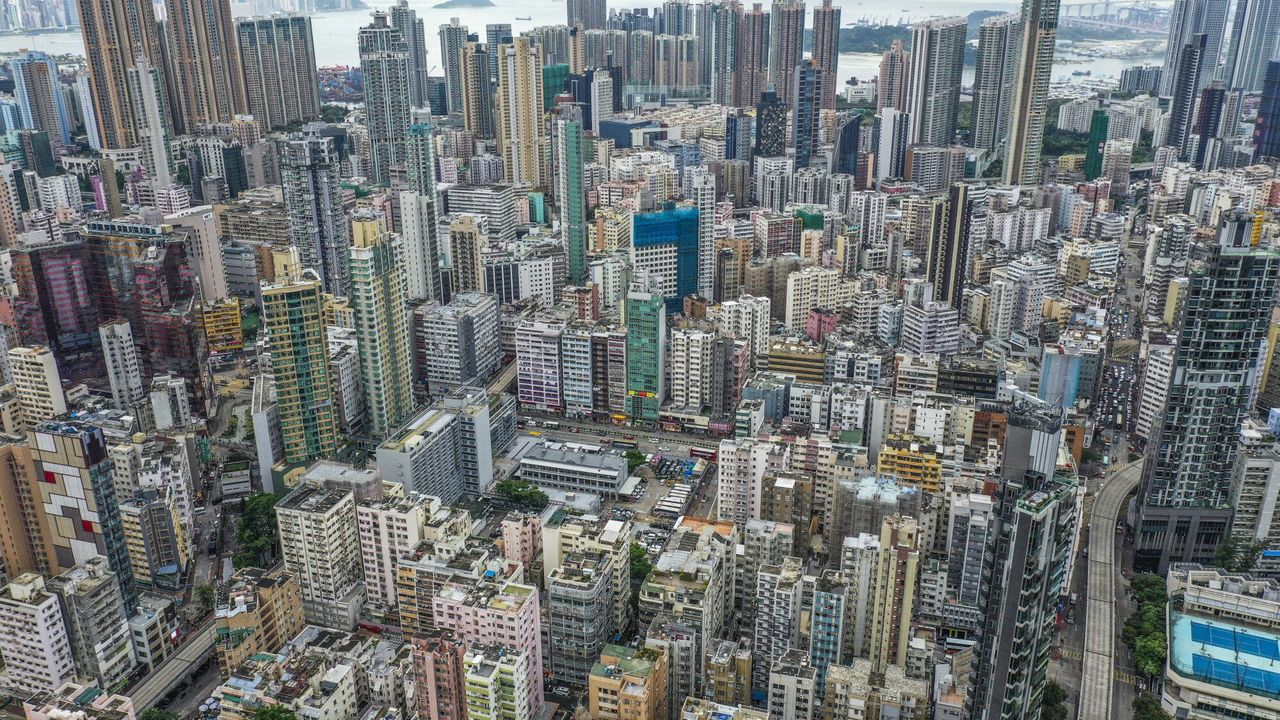Hong Kong News

Low-income Hong Kong residents want rent control, prices tied to property values
Underprivileged Hong Kong residents have joined a local concern group in urging the government to cap rent increases at 10 per cent and tie pricing to the actual market value of properties to prevent landlords from taking advantage of lower-income tenants.
Speaking at a Sunday press conference, residents also called on the administration to ban landlords from forcefully evicting tenants unless the unit was in need of maintenance or had been used for illegal purposes. A government task force is to submit its rent-control suggestions later in the week.
Wilson, a middle-aged man who was forced to move out of a 180 sq ft subdivided flat where he lived with his disabled mother for four years after losing his job in the restaurant industry last March, was among those at the Sunday event held by the Society for Community Organisation (SoCO).
 Hong Kong’s Society for Community Organisation said it found some
landlords renting out subdivided units had made large profits amid the
pandemic.
Hong Kong’s Society for Community Organisation said it found some
landlords renting out subdivided units had made large profits amid the
pandemic.
“The landlord said to me: ‘You’ve lost your job, you can’t afford to rent here anyway,’” he said.
While Wilson, who declined to disclose his full name, was originally paying HK$5,000 for the flat in Mong Kok, he said the landlord increased his rent six times in the past three months he lived there.
“He was trying to force me out. Eventually, it got to the point where I could no longer afford it,” he said.
Wilson has since moved to a 400 sq ft unit subdivided so at least 20 people can each rent their own 20 sq ft bed space. He had to send his mother back to mainland China to stay with his relatives. In between, he spent two months in a 80 sq ft cubicle fashioned with wooden partitions, but no individual toilet.
“I’ve lost all my savings. I feel like I have been abandoned by the world and lost all my confidence,” said Wilson, who now works part-time as a security guard.
SoCO social workers said that landlords of subdivided units, home to the city’s poorest residents, had continued to increase rents by up to 10 per cent despite the ongoing pandemic, with some reaping profits between 1.3 to nine times the actual rental value of the units they own, often in run-down buildings.
The group’s findings were made by comparing estimated rental values from the Rating and Valuation Department with actual rent prices being paid by tenants of so-called cage homes, capsule homes, and subdivided and partitioned flats.
SoCO community organiser Angela Lui Yi-shan said: “Although rents have decreased slightly since the pandemic started last year, this does not apply to the market for subdivided flats.
“One in 10 subdivided flat tenants in [Sham Shui Po] district faces rent hikes, even as their salaries have fallen.”
Lui added that some landlords would not directly increase rent, but instead raise the utility fees they collected from tenants, claiming the amount of water and electricity consumed had gone up since they started staying home more due to the coronavirus.
Another woman living in a subdivided flat in Sham Shui Po, surnamed Wong, said her landlord had tried to evict her suddenly last August after six years as a tenant. She ended up paying an additional HK$1,000 to stay, making her rent on the 150 sq ft flat more than HK$5,000.
“The place also leaks. Last year, when there was a really bad storm, I woke up at night and the water was up to my ankles,” she said. Wong added she had also paid HK$1,500 to call a plumber during the Lunar New Year period to fix a clogged toilet that had caused sewage water to leak into her flat, a solution for which her landlord refused to help pay.
Lui, Wilson, Wong and other subdivided housing tenants said they hoped the government would intervene and implement a holistic rent control plan landlords could not easily exploit.
SoCO community organiser Sze Lai-shan said she heard the task force would recommend capping rent increases at 15 per cent, a figure she found unacceptable, urging the government to cap it at 10 per cent instead.
“The residents we are helping think 15 per cent is too high because of current economic factors, and the current starting rent price is already too high anyway,” Sze said.
Hong Kong previously implemented rent control as a short-term measure from 1921 to 1926, and again from 1973 to 2004, to counter unusually high rent increases during housing shortages.
In the years since rent control ended, SoCO surveys found the price of subdivided housing had skyrocketed, with the smallest 18 sq ft cage homes doubling in price from HK$52.3 per square foot in 2009, to HK$105.6 per square foot in August of 2020.
Apart from regulating rent increases, Sze said the government should cap the amount that could be charged to begin with based on a property’s actual market value, preventing landlords from charging unreasonably high rents for small and old housing units.
She also called on the government to put in place rules to prevent forced evictions as well, unless the landlord wanted to renovate or live in the unit themselves, or if the tenant was carrying out illegal activities.
Lui added the government also needed a dedicated department to handle issues related to subdivided housing. “Otherwise, there is no one to help with complaints, and tenants just get passed between departments,” she said.
Lui said tenants had previously called police for help handling difficult landlords, but were told officers did not deal with such conflicts.











